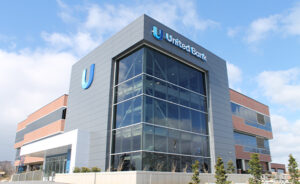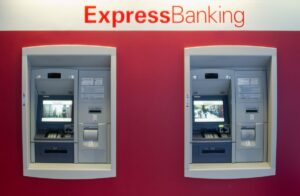
Obtaining financing to buy a home in Jacksonville or any other location typically involves similar steps. Here is a step-by-step guide to help you secure financing for your new home:
Review your credit report
Obtain your credit report from one of the three major credit bureaus (Equifax, Experian, or TransUnion). Check for any errors and take steps to correct them, if necessary. A higher credit score will help you secure better mortgage terms.
Reviewing your credit report is important for several reasons:
Check for errors: Your credit report contains information about your credit history, including your payment history, balances, and credit limits. It’s important to review your credit report regularly to make sure there are no errors or inaccuracies that could be negatively affecting your credit score.
Detect fraud: By reviewing your credit report regularly, you can detect any fraudulent activity on your accounts. This could include unauthorized credit inquiries, new accounts opened in your name, or charges you did not make.
Improve your credit score: By reviewing your credit report, you can identify areas where you can improve your credit score. For example, if you have high balances on your credit cards, you can work on paying them down to improve your credit utilization ratio.
Prepare for major financial decisions: If you plan on applying for a loan or credit card, or even renting an apartment or applying for a job, it’s important to review your credit report ahead of time. This way, you can address any issues or errors before they negatively impact your application or creditworthiness.
Determine your budget
Calculate how much you can afford to spend on a home by considering your monthly income, expenses, and any existing debts. A general rule of thumb is that your mortgage payment should not exceed 28-30% of your monthly gross income.
Here are some key factors to consider:
Calculate your income: Start by calculating your monthly income from all sources. This includes your salary, any bonuses, rental income, or any other source of income.
Determine your monthly expenses: Next, calculate all of your monthly expenses, including rent, utilities, car payments, credit card payments, and other bills.
Determine your debt-to-income ratio: Your debt-to-income ratio is the percentage of your monthly income that goes toward paying debts. Lenders typically use this ratio to determine your creditworthiness. Aim for a debt-to-income ratio of 36% or less.
Check your credit score: Your credit score will affect your ability to qualify for a mortgage and the interest rate you’ll pay. Check your credit score and report from one of the three major credit bureaus (Equifax, Experian, or TransUnion) and take steps to improve it if necessary.
Consider your down payment: The amount of money you have for a down payment will affect the size of your mortgage and your monthly payments. Typically, a down payment of 20% of the home’s purchase price is ideal, but you may be able to qualify for a mortgage with a smaller down payment.
Research the housing market: Look at homes in your desired Jacksonville neighborhoods and determine the price range for homes that meet your needs. Consider working with a real estate agent who can help you find homes within your budget.
Use an online mortgage calculator: Once you have a sense of your budget and down payment, use an online mortgage calculator to estimate your monthly payments, including principal, interest, taxes, and insurance.
Save for a down payment
Aim to save at least 20% of the home’s purchase price for a down payment to avoid paying private mortgage insurance (PMI). However, there are financing options available for lower down payments.
Here are some steps you can take to save for a down payment on a Jacksonville home:
Set a goal: Determine how much money you need to save for a down payment. Generally, a down payment is around 20% of the purchase price of the home. However, there are some mortgage programs that require lower down payments, such as FHA loans that require as little as 3.5% down. Once you know how much you need to save, set a realistic goal for yourself and establish a timeline for achieving it.
Create a budget: Review your income and expenses and create a budget that allows you to save money each month. Look for areas where you can cut back on expenses and redirect that money towards your down payment savings. Consider setting up automatic savings contributions to help you stick to your budget.
Explore down payment assistance programs: There are various down payment assistance programs available for first-time homebuyers, low-income families, and military personnel. Research these programs and see if you qualify for any of them.
Increase your income: Consider taking on a part-time job or side hustle to earn extra income. Use the extra money you earn to boost your down payment savings.
Reduce debt: High levels of debt can make it difficult to save for a down payment. Work on paying off high-interest debts first, such as credit card balances, to free up more money for savings.
Be patient and persistent: Saving for a down payment can take time and discipline. Stay focused on your goal, avoid temptation to spend money on unnecessary items, and stay committed to your budget and savings plan.
Research loan options
Familiarize yourself with the various types of mortgage loans available, such as conventional loans, FHA loans, VA loans, and USDA loans. Each loan type has its own requirements and benefits, so choose one that best fits your financial situation and goals.
Here are some steps to help you research loan options to buy a Jacksonville home:
Determine your budget: Before researching loan options, you need to determine how much you can afford to borrow. You can use online calculators to estimate your monthly mortgage payments and determine your maximum loan amount.
Research different loan types: There are several types of loans available to buy a home, including conventional loans, FHA loans, VA loans, and USDA loans. Each type of loan has its own requirements and eligibility criteria, so it’s important to research and understand them before making a decision.
Compare interest rates: Interest rates can vary significantly between lenders, so it’s important to shop around and compare rates. You can use online comparison tools to get an idea of the current rates, but it’s also a good idea to contact lenders directly to get a personalized quote.
Look for lender reviews: It’s important to choose a reputable lender, so be sure to read reviews from other borrowers before making a decision. You can find reviews on websites like Zillow, Google, and Yelp.
Get pre-approved: Once you’ve narrowed down your options, it’s a good idea to get pre-approved for a loan. This will give you an idea of how much you can borrow and make you a more attractive buyer to sellers.
Seek professional advice: Finally, it’s always a good idea to seek professional advice from a financial advisor or mortgage broker. They can help you navigate the loan process and ensure that you’re making an informed decision.
Get pre-approved
Contact several mortgage lenders to obtain pre-approval for a mortgage. This will give you an idea of how much you can borrow and demonstrate to sellers that you are a serious buyer. Be prepared to provide documentation such as pay stubs, tax returns, and bank statements.
Here are the steps you can follow to get pre-approved to buy a home in Jacksonville:
Check your credit score: Your credit score is one of the key factors that lenders use to determine whether you are eligible for a home loan. You can check your credit score for free through various online platforms. Aim for a credit score of at least 620 to increase your chances of being approved for a home loan.
Find a lender: Look for lenders who offer pre-approval for home loans in Jacksonville. You can start by asking your friends, family, or real estate agent for recommendations. You can also search online for lenders in Jacksonville.
Gather your financial documents: To apply for pre-approval, you will need to provide financial documents such as tax returns, pay stubs, bank statements, and proof of employment. Make sure you have all these documents ready.
Submit your application: Once you have found a lender and gathered your financial documents, you can submit your application for pre-approval. You may be able to submit your application online or in person.
Wait for the lender to review your application: The lender will review your financial documents and credit score to determine whether you are eligible for a home loan. They may also ask for additional information or documentation.
Receive your pre-approval letter: If you are approved for a home loan, the lender will provide you with a pre-approval letter. This letter will state the amount you are pre-approved to borrow, which can help you determine your home buying budget.
Find a real estate agent
Work with a local real estate agent familiar with the Jacksonville market. They can help you find a home within your budget and guide you through the home buying process.
If you’re looking for a real estate agent in Jacksonville, here are some steps you can take:
A tip I got from a sell my house fast Jacksonville realtor is ask for referrals from friends, family, or colleagues who have recently bought or sold a property in Jacksonville. They may be able to recommend an agent who they had a positive experience with.
Use online directories or websites that list real estate agents in Jacksonville, such as Zillow, Realtor.com, or Redfin. These sites can provide you with the agent’s contact information, customer reviews, and areas of expertise.
Check with the National Association of Realtors or the Florida Association of Realtors to find a licensed real estate agent in Jacksonville. You can search for agents by name or location on their websites.
Attend open houses in the area and meet agents in person. This can be a great way to get a sense of an agent’s personality and communication style before deciding to work with them.
Interview several agents before making a final decision. Ask them about their experience, track record, marketing strategy, and commission rates. Choose an agent who you feel comfortable with and who has a good understanding of the Jacksonville real estate market.
Make an offer
Once you’ve found a home you want to purchase, work with your real estate agent to submit a competitive offer based on comparable homes in the area.
Making an offer on a Jacksonville property typically involves the following steps:
Determine the value of the property: Research the market to determine the value of the property you are interested in. You can also hire a professional real estate agent to help you determine the property’s value.
Determine the amount of your offer: Once you know the value of the property, you can decide how much you want to offer. You may choose to offer the asking price or negotiate a lower price based on factors such as the condition of the property, the length of time it has been on the market, and the seller’s motivation to sell.
Draft a purchase agreement: A purchase agreement is a legal document that outlines the terms and conditions of the sale, including the purchase price, financing details, and any contingencies or conditions that must be met before the sale can be completed.
Submit your offer: Submit your offer to the seller or their representative, typically through your real estate agent.
Negotiate and finalize the offer: The seller may accept your offer, reject it, or make a counteroffer. If a counteroffer is made, you may need to negotiate the terms until both parties agree on the purchase price and conditions.
Sign the purchase agreement: Once the terms of the offer are agreed upon, both parties will sign the purchase agreement to finalize the sale.
Complete a home inspection
Hire a professional home inspector to assess the property for any issues or needed repairs. Depending on the results, you may need to renegotiate the purchase price or request repairs before closing.
Here are the general steps you can follow to complete a home inspection:
Gather the necessary tools and equipment: Before beginning the inspection, make sure you have all the necessary tools and equipment, such as a flashlight, ladder, moisture meter, electrical tester, and other specialized tools you may need depending on the type of inspection.
Inspect the exterior of the home: Begin by inspecting the exterior of the home, including the roof, gutters, siding, foundation, windows, doors, and landscaping. Look for any signs of damage, wear and tear, or other issues that may need to be addressed.
Inspect the interior of the home: Once you have completed the exterior inspection, move inside the home and inspect the interior. Check the walls, floors, ceilings, doors, windows, and other structural components. Look for any signs of water damage, leaks, cracks, or other issues.
Inspect the plumbing system: Check all the plumbing fixtures, including sinks, toilets, tubs, showers, and appliances that use water. Test the water pressure and look for any leaks or signs of water damage.
Inspect the electrical system: Check the electrical panel, outlets, and switches, and test them to ensure they are working properly. Look for any signs of outdated or faulty wiring, and check for any safety hazards.
Inspect the heating and cooling system: Test the heating and cooling systems, including the furnace, air conditioner, and ventilation system. Look for any signs of wear and tear, and ensure that they are working properly.
Test appliances and other systems: Check any other appliances or systems, such as the hot water heater, smoke detectors, and carbon monoxide detectors.
Document any issues: As you complete the inspection, make note of any issues or potential problems you identify. Take photos or videos as needed to document any issues.
Provide a report: Once you have completed the inspection, provide a detailed report to the homeowner or buyer. The report should include any issues you identified, along with recommendations for repairs or other actions that may be necessary.
Finalize your mortgage
After your offer is accepted and the home inspection is complete, work with your lender to finalize the mortgage. They will require an appraisal to determine the property’s value and ensure it meets their lending requirements.
Here are the steps to finalize your Jacksonville mortgage:
Review and sign your mortgage loan documents: Once you receive your mortgage loan documents, review them carefully and make sure that all the terms and conditions of the loan are accurate and what you agreed to. Sign the documents and return them to the lender.
Complete the closing process: The closing process involves several important steps, including a final review of the loan documents, payment of closing costs, and the transfer of ownership of the property. Make sure that you have all the necessary documentation and funds to complete the closing process.
Obtain homeowner’s insurance: Before the lender can finalize your mortgage, you will need to obtain homeowner’s insurance to protect your property against damage or loss. You will need to provide proof of insurance to the lender.
Prepare for the first mortgage payment: You will need to make your first mortgage payment on the date specified in your loan documents. Make sure that you have the necessary funds available to make the payment on time.
Communicate with your lender: Stay in contact with your lender throughout the finalization process and ask any questions you may have. Be sure to respond promptly to any requests for additional information or documentation.
Close on the home
Attend the closing meeting, where you’ll sign all necessary paperwork, pay your down payment and closing costs, and finalize the transaction. Once complete, you’ll receive the keys to your new Jacksonville home.
Here are the general steps you may need to take:
Hire a Real Estate Agent: A good real estate agent can help you find the right home, negotiate with the seller, and guide you through the closing process.
Obtain a Preapproval for a Mortgage: Getting pre-approved for a mortgage will help you understand what type of home you can afford and give you more bargaining power during the negotiation process.
Make an Offer: Once you’ve found a home you like, you’ll need to make an offer to the seller. Your real estate agent can help you write up the offer and negotiate with the seller on your behalf.
Get a Home Inspection: It’s important to have a professional inspection of the home to identify any issues that may need to be addressed before closing.
Obtain Title Insurance: Title insurance protects you and the lender from any legal claims that may arise against the property.
Complete the Closing Documents: You’ll need to sign various documents, including the purchase agreement, mortgage paperwork, and other legal forms.
Pay Closing Costs: There will be closing costs associated with the purchase of your home, which may include appraisal fees, title fees, and other expenses.
Final Walk-Through: Before closing, you’ll have an opportunity to walk through the home and ensure that any repairs or other issues have been addressed.
Close on the Home: The final step is to sign all the necessary paperwork and pay the remaining balance of the purchase price. Once the transaction is complete, you’ll receive the keys to your new home.
Remember, each home buying situation is unique, so it’s essential to work closely with professionals, such as mortgage lenders and real estate agents, to guide you through the process.











